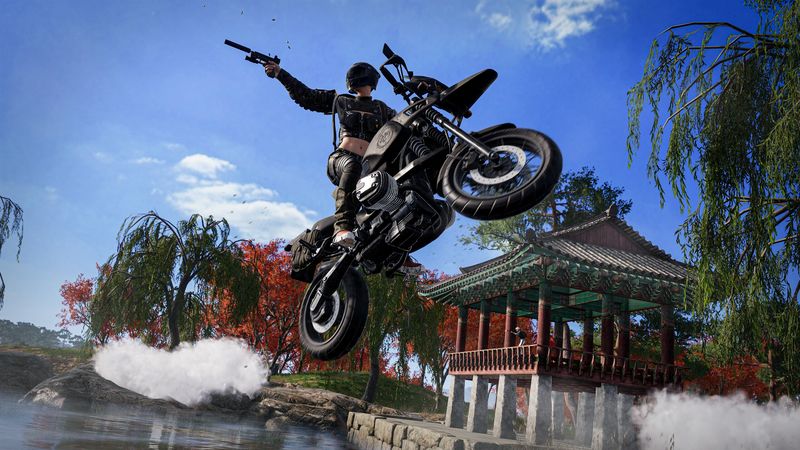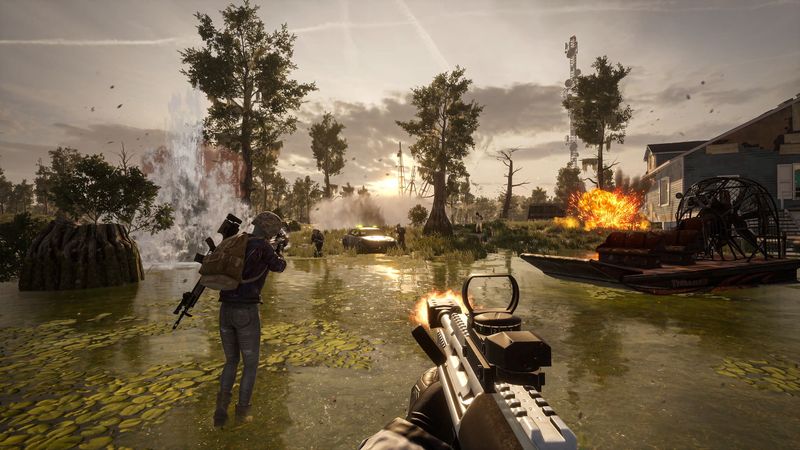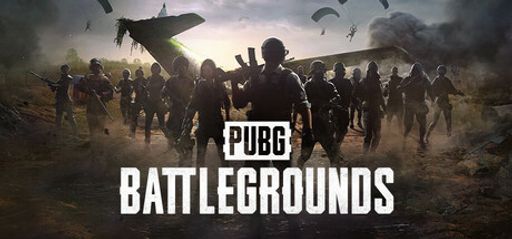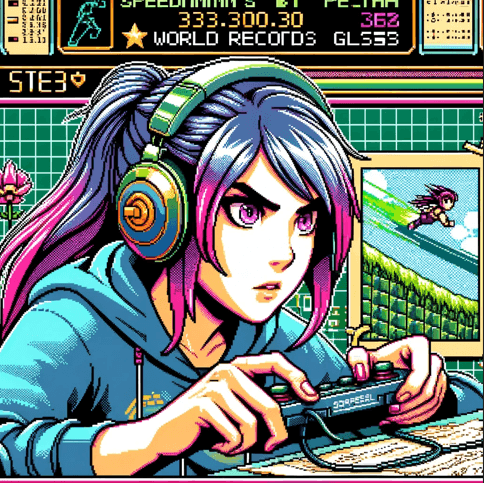 Let’s dive into PUBG: Battlegrounds, developed by PUBG Corporation and published by KRAFTON, Inc. To start, I love its winner-take-all premise. Players praise the thrilling drop-in intensity and the ever-shrinking safe zone. One user said, “The game is still fun to play,” even if cheating and microtransactions hurt the flow. For us speedrunners, every angle and every second counts, so we need reliable servers and solid anti-cheat measures to keep runs fair.
Let’s dive into PUBG: Battlegrounds, developed by PUBG Corporation and published by KRAFTON, Inc. To start, I love its winner-take-all premise. Players praise the thrilling drop-in intensity and the ever-shrinking safe zone. One user said, “The game is still fun to play,” even if cheating and microtransactions hurt the flow. For us speedrunners, every angle and every second counts, so we need reliable servers and solid anti-cheat measures to keep runs fair.
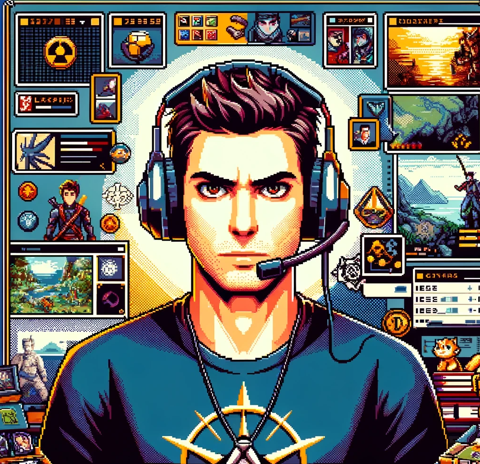 On that note, I agree. PUBG’s map variety and loot system truly shine. In particular, developers add new terrain and weapons each season. I track every Care Package drop, every seasonal event, and every hidden win challenge. Those Epic Zone events reward loyal players with unique skins and titles. Since cheating weakens long-term engagement, Krafton must invest more in anti-cheat. A robust honor system and permanent bans would significantly boost community trust.
On that note, I agree. PUBG’s map variety and loot system truly shine. In particular, developers add new terrain and weapons each season. I track every Care Package drop, every seasonal event, and every hidden win challenge. Those Epic Zone events reward loyal players with unique skins and titles. Since cheating weakens long-term engagement, Krafton must invest more in anti-cheat. A robust honor system and permanent bans would significantly boost community trust.
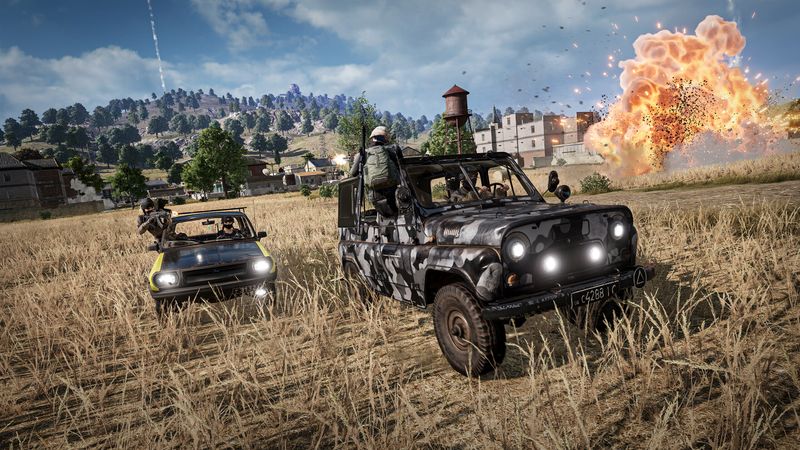
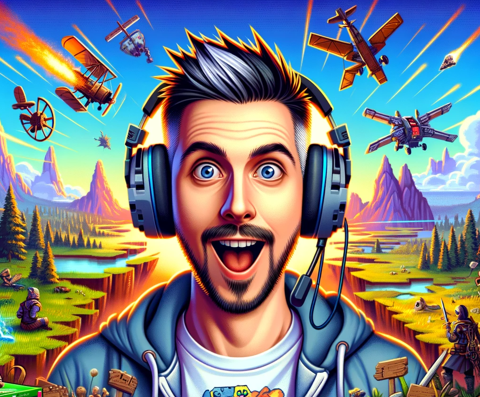 From an open-world perspective, PUBG feels like a living survival sandbox. For example, one day I’m sneaking through Vikendi’s snowstorms, and the next I’m dodging hot drops in Miramar’s city streets. I also love the dynamic weather updates Krafton teases in their dev blogs; they mentioned wanting to deepen environmental storytelling. That approach could give us emergent narratives beyond firefights.
From an open-world perspective, PUBG feels like a living survival sandbox. For example, one day I’m sneaking through Vikendi’s snowstorms, and the next I’m dodging hot drops in Miramar’s city streets. I also love the dynamic weather updates Krafton teases in their dev blogs; they mentioned wanting to deepen environmental storytelling. That approach could give us emergent narratives beyond firefights.
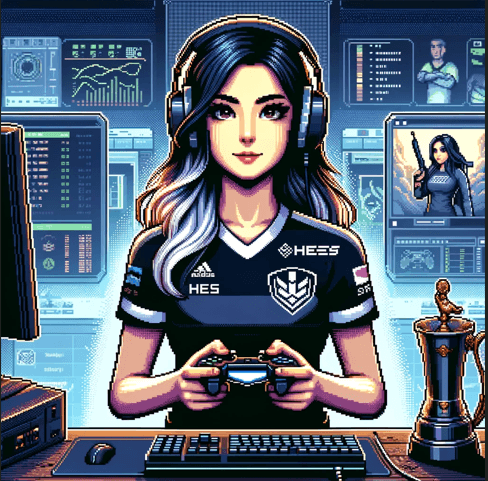 When it comes to competition, PUBG’s shooting mechanics remain top tier. Here, recoil patterns, bullet drop, and weapon attachments demand real skill. I drill micro-bursts with the M416 under crosswind and test every combo after weapon balance updates in the patch notes. Compared to Apex Legends or Call of Duty: Warzone, PUBG leans more into realism. I appreciate that depth, yet we still need better anti-cheat tools to protect rank integrity.
When it comes to competition, PUBG’s shooting mechanics remain top tier. Here, recoil patterns, bullet drop, and weapon attachments demand real skill. I drill micro-bursts with the M416 under crosswind and test every combo after weapon balance updates in the patch notes. Compared to Apex Legends or Call of Duty: Warzone, PUBG leans more into realism. I appreciate that depth, yet we still need better anti-cheat tools to protect rank integrity.
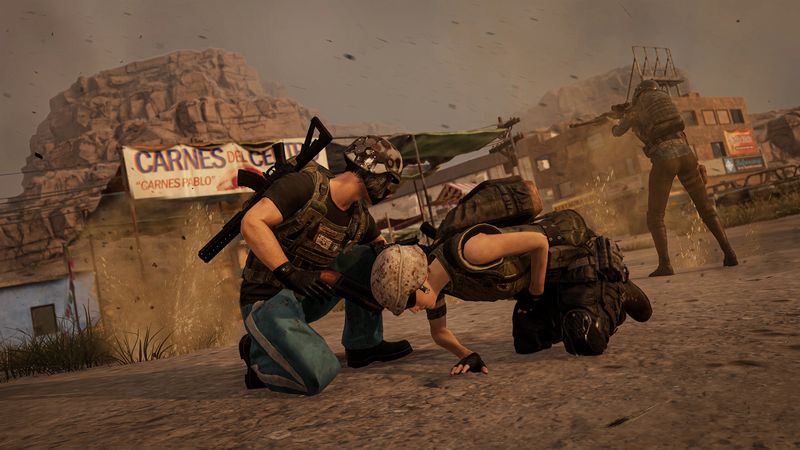
 Turning to story and narrative, battle royale games rarely focus on plot, but PUBG weaves a survival theme through seasonal events. Developer interviews hint at a deleted backstory involving shadow ops on the islands. They also release lore snippets in patch trailers, which adds flavor to every match. Personally, I’d love a single-player spin-off or a co-op survival mode down the road.
Turning to story and narrative, battle royale games rarely focus on plot, but PUBG weaves a survival theme through seasonal events. Developer interviews hint at a deleted backstory involving shadow ops on the islands. They also release lore snippets in patch trailers, which adds flavor to every match. Personally, I’d love a single-player spin-off or a co-op survival mode down the road.
 Visually, PUBG stands out thanks to Unreal Engine 4. Realistic lighting, dynamic shadows, and detailed textures immerse me in each map. Color palettes shift from dusty deserts to icy fields. On mid-range PCs, you can tweak settings for a steady 60 FPS. On consoles, I’ve seen occasional frame dips, but the art direction still feels cohesive.
Visually, PUBG stands out thanks to Unreal Engine 4. Realistic lighting, dynamic shadows, and detailed textures immerse me in each map. Color palettes shift from dusty deserts to icy fields. On mid-range PCs, you can tweak settings for a steady 60 FPS. On consoles, I’ve seen occasional frame dips, but the art direction still feels cohesive.
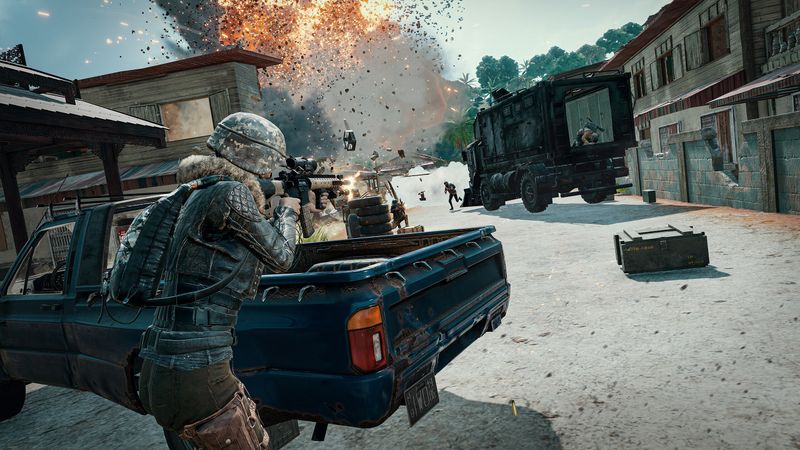
 Audio design deserves applause. Footsteps echo in wide open plains. Gunshots crack with precise directionality. I often rely on 3D audio cues to pinpoint enemies. Seasonal event tracks also build tension—some soundtracks feel inspired by military thrillers. Voice-over snippets in Arcade modes add personality to AI teammates.
Audio design deserves applause. Footsteps echo in wide open plains. Gunshots crack with precise directionality. I often rely on 3D audio cues to pinpoint enemies. Seasonal event tracks also build tension—some soundtracks feel inspired by military thrillers. Voice-over snippets in Arcade modes add personality to AI teammates.
 Characters and development? PUBG uses customizable avatars instead of fixed heroes. That lets players represent themselves in matches. Skins, emotes, and nameplates keep it inclusive. I’ve seen military, casual, and funky character packs. They even added a female commando skin with unique dialogue. It’s basic, but functional. I’d welcome more lore-driven NPC side stories or a cosmetic drop system that ties into in-game achievements.
Characters and development? PUBG uses customizable avatars instead of fixed heroes. That lets players represent themselves in matches. Skins, emotes, and nameplates keep it inclusive. I’ve seen military, casual, and funky character packs. They even added a female commando skin with unique dialogue. It’s basic, but functional. I’d welcome more lore-driven NPC side stories or a cosmetic drop system that ties into in-game achievements.
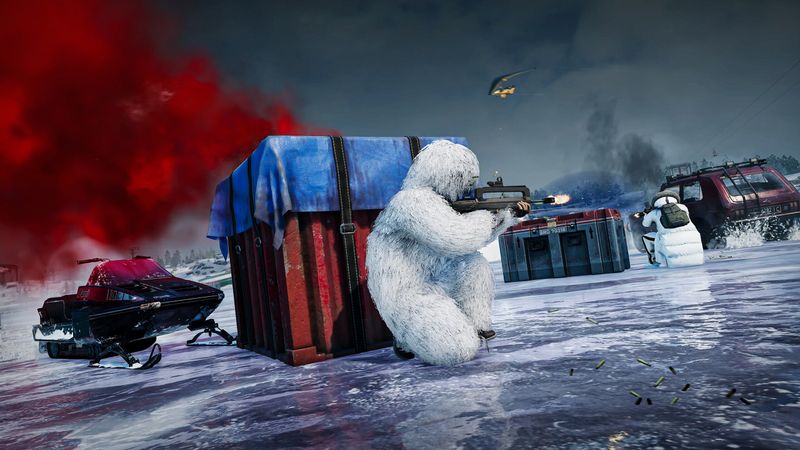
 The challenge curve feels organic. Early matches teach looting and movement. Mid-game, you face tense zone pushes. End-game tests firefight prowess. User feedback cites occasional difficulty spikes when cheaters appear. Accessible settings for aim assist or lower sensitivity could help new players. But veterans want a hardcore mode with zero assists.
The challenge curve feels organic. Early matches teach looting and movement. Mid-game, you face tense zone pushes. End-game tests firefight prowess. User feedback cites occasional difficulty spikes when cheaters appear. Accessible settings for aim assist or lower sensitivity could help new players. But veterans want a hardcore mode with zero assists.
 Replay value sits high. Every drop, every loot find, every team comp offers fresh surprises. Seasonal events introduce time-limited modes and collectible badges. Achievements track headshots, wins, and distance travelled. I’ve logged over 500 hours chasing 100% completion on seasonal Battle Pass tiers. Compared to other shooters, PUBG’s sandbox replay beats most.
Replay value sits high. Every drop, every loot find, every team comp offers fresh surprises. Seasonal events introduce time-limited modes and collectible badges. Achievements track headshots, wins, and distance travelled. I’ve logged over 500 hours chasing 100% completion on seasonal Battle Pass tiers. Compared to other shooters, PUBG’s sandbox replay beats most.
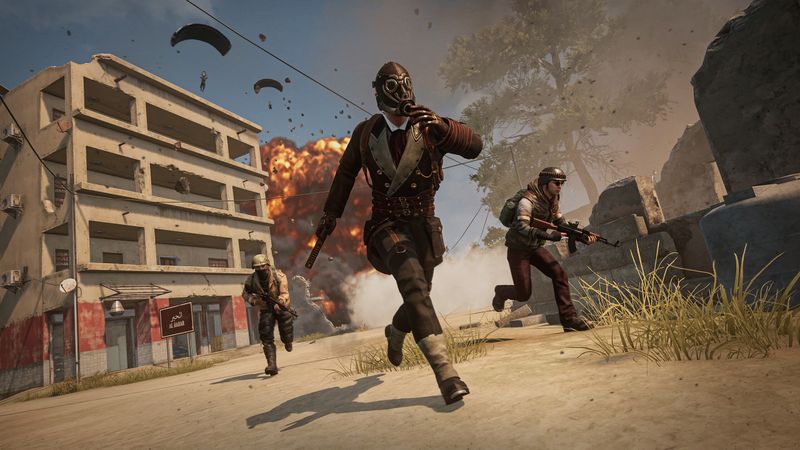
 In sum, PUBG: Battlegrounds blends realistic gunplay, massive maps, and endless variety. Cheating and microtransactions hurt, but the core loop stays fun. Krafton’s seasonal updates and dev transparency hint at a strong roadmap. If they beef up anti-cheat and refine monetization, they’ll reclaim player trust.
In sum, PUBG: Battlegrounds blends realistic gunplay, massive maps, and endless variety. Cheating and microtransactions hurt, but the core loop stays fun. Krafton’s seasonal updates and dev transparency hint at a strong roadmap. If they beef up anti-cheat and refine monetization, they’ll reclaim player trust.
 PUBG still defines the battle royale genre’s core. It rewards skill more than most. With improved cheat detection and continued weapon tuning, it will keep us engaged for years.
PUBG still defines the battle royale genre’s core. It rewards skill more than most. With improved cheat detection and continued weapon tuning, it will keep us engaged for years.
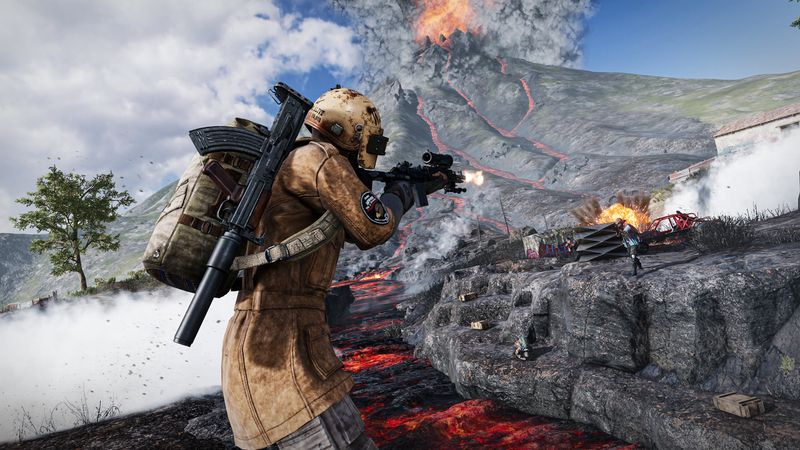
 If you love PUBG: Battlegrounds, you might also enjoy Apex Legends, a free-to-play hero shooter from Respawn Entertainment that combines fast-paced mobility, unique legends, and a ping system for deep tactical play; Call of Duty: Warzone, which brings the signature CoD gunplay to a battle royale setting with robust anti-cheat measures, varied maps, and a deep progression system; Fortnite, Epic Games’ ever-evolving world where building mechanics, frequent collaborations, and vibrant art keep replayability sky-high; Ring of Elysium, Tencent’s free-to-play BR experience that challenges you with extreme weather events like avalanches and flash floods in dynamic safe zones; and Escape from Tarkov, Battlestate Games’ hardcore shooter that demands intense looting, extensive weapon customization, and permadeath for the ultimate realistic challenge.
If you love PUBG: Battlegrounds, you might also enjoy Apex Legends, a free-to-play hero shooter from Respawn Entertainment that combines fast-paced mobility, unique legends, and a ping system for deep tactical play; Call of Duty: Warzone, which brings the signature CoD gunplay to a battle royale setting with robust anti-cheat measures, varied maps, and a deep progression system; Fortnite, Epic Games’ ever-evolving world where building mechanics, frequent collaborations, and vibrant art keep replayability sky-high; Ring of Elysium, Tencent’s free-to-play BR experience that challenges you with extreme weather events like avalanches and flash floods in dynamic safe zones; and Escape from Tarkov, Battlestate Games’ hardcore shooter that demands intense looting, extensive weapon customization, and permadeath for the ultimate realistic challenge.
